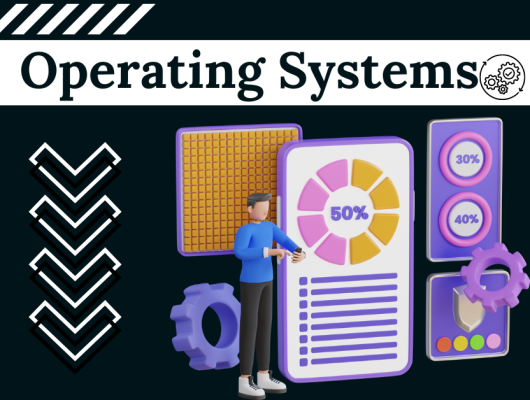Medical Laboratory Technology (MLT) is a field within the allied healthcare professional industry that involves clinical laboratory sciences. This branch of healthcare focuses on utilizing cutting-edge technology and specialized technologists to diagnose patients through various laboratory tests. It is a relatively recent subject, addressing the growing number of medical terms and the complex nature of healthcare. Laboratory technicians in medical lab technology play a crucial role, and there is a high demand for skilled professionals in this sector.
Medical technology, a beginner’s guide: Dive into the world of healthcare innovations. Explore the realms of diagnostics, robotic surgery, telehealth, and wearable devices transforming the medical landscape.
What is Medical Laboratory Technology Scope in Pakistan?
MIn Pakistan, medical laboratory technology holds high significance in the healthcare system. The field is witnessing significant demand in the employment market, with a rapidly growing range of opportunities for students. The medical lab technology scope is expanding due to continuously developed new technologies, making diagnosis simpler for healthcare professionals. Many students, especially those exploring their career path in the healthcare field, find themselves intrigued by this troubling question: what is medical lab technology?
MLT Specializations
Medical Lab Technology plays a crucial role in the medical field by providing valuable insights into patient health. In Pakistan, the scope of medical lab technology is high, offering diverse career opportunities. The specialized fields within this domain are numerous, reflecting the significance of this profession in healthcare. The main specializations covered in the bachelor’s program are carefully focused upon, ensuring a well-rounded education for aspiring professionals.
1. Clinical Chemists
In the field of medical lab technology, various tests are conducted to examine bodily fluids, chemicals, and hormones. One common test is for blood glucose or blood sugar levels, which helps diagnose and control conditions like diabetes. These tests involve the analysis of different entities, including the quantification of medications in the bloodstream. The results, under various headings given by me, contain semantically related and contextually relevant information. NLP-related words play a crucial role in understanding the topic, and the content paragraphs provide a detailed exploration of the subject matter.
2. Clinical Microbiologists
Medical lab technology plays a pivotal role in healthcare by performing diagnostic tests on various samples such as blood, bodily fluids, and tissues. This branch of science employs advanced technology to accurately detect a range of pathogens including bacteria, fungi, viruses, and parasites. Through meticulous analysis of these samples, medical lab professionals contribute to the early identification and treatment of diseases.
3. Hematologists
Medical lab technology plays a crucial role in healthcare by conducting tests to evaluate various aspects of patient health. One significant area is examining blood cells to look for abnormalities that may indicate blood-related illnesses. The importance of skilled medical lab technologists cannot be overstated, as they ensure the precision required to provide accurate test results. These professionals are adept at handling different types of tests to identify and diagnose conditions promptly.
4. Transfusion Scientists
When writing content about medical lab technology, it’s vital to mention all relevant keywords without missing any, and to adjust the content accordingly. To achieve this, shuffle the information, presenting it in a way that meets the requirements of the given headings. While ensuring the information is separately organized under specific bullet points, it’s crucial not to make the content overly complex.
5. Diagnostic Cytologists
Medical lab technology is a crucial aspect of healthcare. Medical lab technologists perform a variety of diagnostic tests to analyze body fluids and tissues. Their role is to help doctors detect and treat diseases. The importance of medical lab technology cannot be overstated, as these professionals play a vital role in ensuring accurate and timely results that guide patient care.
6. Clinical Genetics Professionals
Medical lab technology plays a pivotal role in healthcare, particularly in the identification of genetic illnesses. Professionals in this field meticulously perform tests on various biological samples, including chromosomes, DNA, RNA, cells, body fluids, and tissues. These tests provide crucial insights into the genetic makeup of individuals, helping diagnose and understand potential health risks.
Job Opportunities with BS Medical Lab Technology
In the world of healthcare, medical technologists are the unsung heroes, contributing significantly to the functioning of medical laboratories. These laboratories are the hub where the latest medical lab technologies are employed to conduct various tests and analyses. Whether you are interested in working with private laboratories, public health organizations, pharmaceutical companies, or government laboratories, the opportunities are amazing.
Career Prospects of Medical Lab Technology in Pakistan
In Pakistan, medical lab technology offers a high scope of rewarding careers. Pursuing a BS MLT opens doors to various roles such as medical lab technologist, medical laboratory scientist, pharmacy technician, respiratory therapist, pathology technician, MRI technician, dental machine technician, and optical laboratory technician. The diverse opportunities within the field make it an attractive option for those seeking a fulfilling career in healthcare.
BS Medical Laboratory Technology from UCP
The medical lab technology (MLT) program at the University of Central Punjab in Lahore, Pakistan, offers a comprehensive curriculum covering both theoretical and practical aspects. Students delve into various courses and subjects, equipping them with the necessary knowledge for processing and interpretation of diagnostic tests. The institute ensures that graduates not only gain expertise in the field but also receive a BS in medical laboratory technology, laying the foundation for a successful career in the ever-evolving landscape of medical diagnostics. The qualified graduates play a vital role in society, contributing to healthcare through their proficiency in various theoretical areas.
How to become a laboratory technician

Medical laboratory technicians play a critical role in the healthcare team by analyzing various samples such as body fluids and tissues. They perform a range of tests to assist doctors in diagnosing illnesses. Operating laboratory equipment is a crucial aspect of their job, as they must maintain sterile conditions to ensure the accuracy of results. In this integral part of the medical field, their contributions to patient care are invaluable.
1. Enroll in a degree program.
A medical laboratory technician plays a crucial role in the field of healthcare. To become one, individuals typically pursue an associate degree or a bachelor’s degree in clinical laboratory science, where they gain expertise in subjects such as chemistry, biology, and math. Armed with technical proficiency, they utilize precision instruments and automated equipment to perform laboratory testing and diagnostic procedures.
2. Earn your degree.
In a medical lab technology degree program, students undergo rigorous training in various science courses and math courses essential for understanding the intricacies of medical lab procedures. The curriculum encompasses hands-on lab work in areas such as hematology and microbiology, where students learn to analyze and interpret diverse samples. This specialized program not only equips students with a robust skill set but also provides valuable clinical work experience.
3. Get certified.
In the realm of medical lab technology, aspiring lab technicians often embark on a journey of acquiring the necessary degree and certifications. The path involves rigorous studies and culminates in challenging exams conducted by the American Society for Clinical Laboratory Science. Success in these examinations not only earns a coveted certificate but also opens doors to a multitude of opportunities.
Medical laboratory scientist vs. medical laboratory technician
Medical Lab Technology encompasses a broad field with key differences between medical lab scientists and medical lab technicians. Medical lab scientists typically hold a degree in the field and are involved in more complex tasks, whereas medical lab technicians perform routine lab work under supervision. Employers often look for certifications and licenses, with the American Society for Clinical Laboratory Science providing a certified lab board.
Medical laboratory scientist vs. medical laboratory assistant
Medical laboratory assistants play a crucial role in the healthcare system, working alongside a subgroup that includes medical laboratory technicians and medical laboratory scientists. They are responsible for preparing biological specimens and accurately recording information about them. Additionally, these professionals perform essential lab maintenance tasks such as cleaning equipment and stocking supplies.
Becoming a medical laboratory scientist
Medical lab technology is a dynamic field where scientists with a love for science and technology perform and analyze tests. These professionals, with exceptional eye-hand coordination and dexterity, use their keen visual acuity to skillfully carry out intricate procedures. Successful medical lab technologists must be effective communicators, as they often interact with patients and colleagues, making their intellect and research skills an integral part of their career.
Higher education requirements
Medical lab technology is a field that requires specialized education and training. Common higher education requirements include obtaining a high school diploma or its equivalent. To reach the required level, aspiring medical laboratory scientists typically pursue a bachelor’s degree in a health-related field such as medical technology, clinical laboratory science, or microbiology. A clinical laboratory program, which may include an internship or a hospital-based program, is considered essential for their education.
Certification and licensing
Medical laboratory technology plays a crucial role in healthcare, with medical laboratory scientists (MLS) being key contributors. The American Society for Clinical Pathology (ASCP) is a prominent accrediting body that ensures high standards through its Board of Certification (BOC). MLS seeking recognition often undergo a rigorous credentialing exam to obtain the coveted MLS(ASCP)CM title.
Conclusion
Medical lab technology plays a crucial role in diagnosing and monitoring diseases. Through analyzing samples and utilizing advanced equipment, it enables accurate results that guide healthcare decisions. Its continuous evolution is vital for enhancing patient care and advancing medical knowledge.
Common Question of Medical Lab
How many marks required for MLT?
Eligibility Criteria: A candidate must have at least 45% marks in F.Sc. Pre-Medical/A levels with (Biology, Physics & Chemistry) or equivalent.
What is the age limit for BS MLT?
Admission Eligibility
Age: A candidate must not be more than 23 years of age on October of the year of admission provided that the vice-chancellor may relax the age limit is a very exceptional case.
What are the basic laboratory technology?
Basic laboratory skills are the techniques required for conducting experiments. These include pouring, measuring, filtration, and using gas burners and glassware.
Is ICS better than FSC?
ICS has more scope than FSC in Pakistan because it is the time of Computer Technology and everybody is using this Technology in different shapes like Computer, Smartphones, Tablets.







